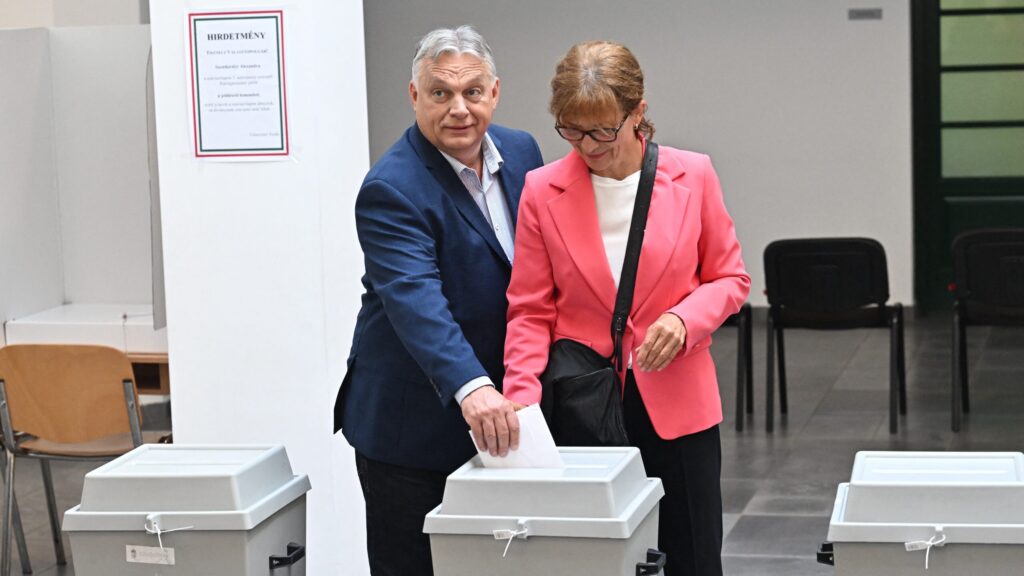This article was published in Vol. 3 No. 4 of our print edition.
How the Freedom of Religious Belief Has Been an Integral Part of the Hungarian Humanitarian and Development Policy
The Hungary Helps Program is the Hungarian government’s humanitarian aid and development programme, established in 2017. In addition to its aim of providing effective support in crisis areas, the Hungary Helps Program has a particular focus on vulnerable and persecuted communities, especially religious minorities. In line with its economic growth, Hungary has become more actively involved in international development, humanitarian aid, and crisis management efforts. Hungary became a member of the OECD Development Assistance Committee in 2016, and since then—in proportion to the size of its population and the bearing capacity of its economy—it has continuously increased its contribution to international development cooperation.1
In this regard, efforts to reduce world poverty and global inequality and facilitate international security, stability, peace, and sustainable development are high priorities. In addition to general humanitarian principles, the political position places a strong emphasis on the need for crisis management efforts to address the ongoing refugee crisis. Hungary is committed to handling the migration crisis, which has an impact on shaping its international development policy. From the Hungarian government’s standpoint, it is necessary to address the causes of migration. International development projects and humanitarian aid initiatives should seek rational solutions to local problems. Without creating decent living conditions in source countries, the international community cannot ensure that millions of people do not leave their home countries.
Furthermore, in terms of Hungarian aid and development policy, an additional aspect has become strongly apparent since 2016–2017. The issue of freedom of religion and belief has become a prominent aspect of humanitarian and development activities. In this regard, it is worth mentioning that the Hungarian government already dealt with the situation of religious persecution in 2015, examining the possibility of helping Christians who fled the territory of the Islamic State. At the beginning of 2016, the Hungarian government decided to allocate a grant to support the education of Christian children living as refugees in the Middle East.2
‘The Hungary Helps Program is the Hungarian government’s humanitarian aid and development programme,…with a particular focus on vulnerable and persecuted communities, especially religious minorities’
In the summer of 2016, Prime Minister Viktor Orbán and Human Capacities Minister Zoltán Balog met with Middle Eastern church leaders at an international conference organized for Christian politicians in Frascati, Italy, where they talked in person about the persecution of their churches.3 In response, the Hungarian government decided to create a government organizational unit dedicated to helping persecuted Christians and other persecuted or marginalized communities around the world. Government Decree 1513/2016 (IX. 22) established the Deputy State Secretariat for the Aid of Persecuted Christians, which began its operation on 15 October 2016.4 The task of the Deputy State Secretariat is to help persecuted and marginalized Christian communities, analyze the increasingly salient phenomenon of Christian persecution, and present its complex nature and possible repercussions to the domestic and international public. In 2018, the Deputy State Secretariat was expanded into a State Secretariat under the direction of the Prime Minister’s Office, and the Hungary Helps Program was included under its coordination.5 Since the last election, the State Secretariat for the Aid of Persecuted Christians has operated under the political coordination of the Minister of Foreign Affairs and Trade.
All of this reflects the commitment of the Hungarian government to shaping its international humanitarian and development policy in a way that makes delivering adequate government-level responses to the growing trend of Christian persecution an integral part of its functioning. Government-level measures against the challenge of Christian persecution were thus included in the already comprehensive and complex system of development and aid policy. The establishment of the government programme is directly related to the new types of challenges posed by the strengthening of terrorism and extremism against different cultures and religious minorities, especially Christian minorities. This phenomenon threatens the prosperity of developing countries, where, among other potential calamities, the coexistence of different religious and ethnic communities going back hundreds of years may cease. Moreover, increasing uncertainties in the security environment cause an increase in migration rates. These challenges in one way or another also affect the societies of Western countries. Focusing on the right to religious freedom accords with the view that religious freedom is the culmination of all other freedoms, and is the foremost of human rights, ‘for it expresses the most fundamental reality of the person’.6
What Does ‘Christian Persecution’ Mean?
The international public began to take note of the phenomenon of Christian persecution after the destruction caused by the Islamic State. In the areas controlled by the terrorist organization, persecution of the Christian and Yazidi populations was carried out with extreme brutality. The videos of beheadings and the stories of young girls forced to become sex slaves spread across the internet and shocked the Western public. Christian persecution is, however, about far more than the barbarity carried out by the Islamic State. According to a 2013 report by the Commission of the Bishops’ Conferences of the European Union (COMECE 2013) ‘at least 75 per cent of all religious persecution in the world is directed against Christians’.7
The Budapest Report on Christian Persecution 2019 points out that Christian persecution has different forms: cultural isolation; the controlling, restriction, or obstruction of the practice of religion; state discrimination; and intimidation. The most barbaric form of persecution undoubtedly takes the form of acts of violence.8 According to the author, what connects these actions in different forms and geographical locations is the aim, which is ‘limiting or completely prohibiting the practice of religion and belief of the individual or community concerned’.9
Global Christian Relief created a framework to classify the reasons behind this persecution. In this regard, the following forms may be identified: the official and cultural domination of a single religion (Pakistan, Iran, Malaysia), extremist groups’ efforts to destroy Christians (Boko Haram in Nigeria), suspicion of anything outside the major cultural faith (India), authoritarian governments which consider Christianity and Christians to be a threat to power and thus suppress it (North Korea), or cases in which religious freedom is not respected as a human right. As they specify, ‘Christian persecution takes many forms; it is defined as any hostility experienced as a result of identification with Jesus Christ.’10
In addition to the above definitions, it is worth mentioning that besides physical acts, such as sexual violence, torture, arrest, and even murder, abuses belonging to the intellectual and spiritual sphere are also a part of the phenomenon. As a standard on the subject, the annual Open Doors report helps to give a comprehensive picture. According to the World Watch List 2023, ‘more than 360 million Christians suffer high levels of persecution and discrimination for their faith’. More than 5,600 Christians were murdered, more than 2,100 churches were attacked, and more than 4,500 Christians were detained in 2022.11 The report listed nineteen African countries among the top fifty where Christians face the most extreme persecution, followed by the Far East, with eighteen countries (mainly in Southeast Asia and East Asia). Nine Middle Eastern and four South American countries were among the top fifty.12
As can be seen, there has been a shift in this trend in recent years towards Africa and the Far East, despite the fact that most people think of the Middle East when they hear about the persecution of Christians. Nonetheless, when it comes to the number of countries as a proportion of the regional total, the Middle East is still overrepresented. A study from the Pew Research Center notes that the ‘Middle East–North Africa region had the largest share of countries where Christians were harassed in 2018. Of the 20 countries in the region, 19 had some form of harassment targeting Christians (either by governments or social groups).’13
The Main Principles of the Hungary Helps Program
These are the trends that justify the existence of a dedicated governmental unit to analyze Christian persecution and help persecuted Christians. Its inclusion in the general humanitarian policy represents the government’s commitment to the freedom of religion and belief. How did the activity of the State Secretariat start? One of the main principles of the Hungary Helps Program is direct donation to different communities living in the Middle East, Asia, or Africa. The first task was making contact with the leaders of churches and communities affected by religious persecution or discrimination in order to learn about their situation and to identify the most necessary humanitarian needs. This is crucial in order to launch necessary and sustainable humanitarian and development projects. The Budapest Report on Christian Persecution in 2018 highlights that direct support to persecuted communities cannot be achieved without ‘stable and sincere relations’ with local communities. In order to meet this expectation, ‘there have been regular official visits: multiple state officials from Hungary, including members of the government, have visited these communities…’. Church leaders also visited Hungary to report personally on their situation to government members and inform the national and international public.14
Projects helping persecuted Christians are predominantly implemented on a bilateral basis, which has demonstrably led to a statistical increase in the share of bilateral funds in terms of international development contributions. This was one of the strategic aims of the Hungarian government for the 2014–2020 term.15 To increase efficiency, on 14 April 2019 the Hungary Helps Agency was established.16 This governmental agency works as a non-profit organization, coordinated by the State Secretariat. Professional project management was outsourced under the agency’s responsibility, to carry out the implementation of subsidy payments and follow up on transactions, financial and technical coordination, and monitoring.17 The Agency is able to ensure on-site presence in the case of current projects with official visits or local partners.18 Being on location is crucial in determining the areas of intervention in close cooperation with the beneficiary, on the basis of mutual respect. However, on-site presence is ensured not only through close cooperation with the local partners, but also by means of regular on-site monitoring.
When we talk about Christian persecution and humanitarian assistance for persecuted churches, there are many aspects to consider. Highest priority is given to life-saving interventions. At the same time, the project applications of local communities point to many other aspects. Ambitions to keep communities in their homeland are notably high among priorities. Behind the requests related to various educational, health, or other projects, there is often the underlying intention that steps toward the practical implementation of legal equality will strengthen not only the individual, but also the community. Those development projects that aim to ensure access to education or create job opportunities and decent living conditions always have a community-oriented aspect. In addition, these communities often form a collective that is outside the state social network or receives less attention. All of this also indicates how the right to religious freedom is connected to other fundamental rights, and positive changes in terms of the right to a free conscience generate other processes.
Helping the persecuted contributes to creating general legal equality in other fields of law, such as education or social rights. When we talk about the strengthening of persecuted Christian communities, the issue of cultural heritage is often raised. Cultural heritage falls within the scope of cultural rights and development policy, which should be approached as an interdisciplinary field. The Islamic State systematically destroyed many cultural buildings, statues, and other objects that formed part of the cultural heritage of minority communities. Talking about sustainable development, we must include an aspect that considers the historical diversity of these communities as a value and a balancing factor, and approaches the preservation of their shared environment in a way that accords with their cultural heritage. When we talk about the persecution of Christians, it must be borne in mind that communities that have a history of hundreds or thousands of years may disappear from certain regions. This shows that emphasizing freedom of religion in development policy does not limit the positive effects to this domain. Quite the contrary, it raises a series of additional aspects that would otherwise remain invisible.
The Hungarian experience suggests another peculiarity in the field of humanitarian assistance: individual rights are not always enough to ensure minority rights. There is community dimension when it comes to freedom of religious belief, no less than in the domains of language and cultural rights, that needs to be taken into consideration and implemented.
Introducing Some Projects and the Scope of the Hungary Helps Program
At an early stage, the Hungary Helps Program had a focus on the Middle East, by which it intended to help thousands of families affected by armed conflicts, the destruction of the Islamic State, and other humanitarian emergencies. The reconstruction of the Iraqi city of Tell-Askuf, where the Hungarian aid programme contributed to the renovation of 950 residential houses and seven church properties, including five local schools and the local kindergarten, has enabled around 1,000 families to return to their hometown. The programme has reached tens of thousands of beneficiaries in Syria. The reconstruction of the Al-Amal (Hope) School in Aleppo promotes peaceful coexistence between Christian and Muslim students. Projects aimed at the resettlement of refugee Christian families played a significant role in strengthening local communities affected by the conflict. The Hungarian government also contributed to the ‘Open Hospitals’ project, by which the Hungary Helps Program enabled the operation of three Syrian medical institutions for one year. The importance of this project is shown by the fact that the lack of healthcare claimed more victims in Syria than the civil war.
After the Middle East projects, the programme extended its scope to the sub-Saharan region. Nowadays it is also present in the Sahel region and other crisis areas. Thus, in Nigeria, it provides aid to Christians threatened by the Boko Haram Islamist terrorist organization, while in Ethiopia it supports the social mission of local churches targeting those fleeing the conflict in South Sudan and Eritrea. In the Democratic Republic of the Congo, it supports the medical mission of Richárd Hardi, a Hungarian ophthalmologist. His mission is the only one in a region with eight million people, and provides eye care to more than 10,000 people.
The Scholarship Program for Christian Young People provides an opportunity to pursue studies in universities for those who are discriminated against in their homelands. The project also contributes to the reconstruction and economic recovery of their countries of origin. During its seven years of operation, the State Secretariat has sought opportunities to establish cooperation with other countries. The Visegrád Group members and other European partners were open to project-level cooperation. However, in some cases, it has been possible to move in the direction of deeper cooperation. The biggest success was the conclusion of an agreement with the development agency of the United States during the Trump era. In December 2018, a Memorandum of Understanding was signed between the United States Agency for International Development (USAID) and the State Secretariat for the Aid of Persecuted Christians, which aimed to jointly support economic reconstruction for persecuted Christians in Iraq. Within the framework of this cooperation, the American side joined Hungarian efforts intended for the reconstruction of Karakos, which was severely affected by the war.
NOTES
1 OECD, ‘OECD Development Co-operation Peer Reviews: Hungary 2023’, www.oecd.org/hungary/oecd-development-co-operation-peer-reviews-hungary-2023-ec7d67f1-en.htm, accessed 10 November 2023.
2 Béla Baranyai, ‘A püspöki konferencia támogatja a közel-keleti menekült gyermekek oktatását (Bishops’ Conference Supports the Education of Refugee Children from the Middle East), Magyar Kurír, www.magyarkurir.hu/hirek/puspoki-konferencia-tamogatja-kozel-keleti-menekult-gyermekek-oktatasat, accessed 10 November 2023.
3 Andrea Gagliarducci, ‘In Hungary, Anti-Christian Persecution Prompts Government Action’, Catholic News Agency, www.catholicnewsagency.com/news/34540/in-hungary-anti-christian-persecution-prompts-government-action, accessed 10 November 2023.
4 ‘A Kormány 1513/2016. (IX. 22.) Korm. határozata az üldözött keresztények segítéséért felelős helyettes államtitkár feladatellátásához szükséges intézkedésekről’ (Government decision on the measures necessary for the performance of the duties of the Deputy Secretary of State responsible for helping persecuted Christians), Magyar Közlöny (2016), 143, www.kozlonyok.hu/nkonline/MKPDF/hiteles/mk16143.pdf , accessed 10 November 2023.
5 ‘A Kormány 172/2018. (IX. 26.) Korm. rendelete a Kormány tagjainak feladat- és hatásköréről szóló 94/2018. (V. 22.) Korm. rendelet módosításáról’ (Government Decree No. 94/2018 on the duties and powers of the members of the Government. (V. 22.) on the amendment of the Government Decree), Magyar Közlöny (2018). 145, www.kozlonyok.hu/nkonline/MKPDF/hiteles/MK18145.pdf, accessed 10 November 2023.
6 Pope Benedict XVI, ‘Speech to the Members of the Diplomatic Corps Accredited to the Holy See for the Traditional Exchange of New Year Greetings, 9 January 2012’, Vatican, www.vatican.va/holy_father/benedict_xvi/speeches/2012/january/documents/hf_benxvi_spe_20120109_diplomatic-corps_en.html, accessed 11 November 2023.
7 José Luis Bazán, ‘The Right to Religious Freedom from an International Perspective’, in International Perspectives on Religious Freedom, Proceedings of Conferences on Religious Freedom 2010–2012 (Brussels: EPP Group, 2013).
8 József Kaló, ‘Keresztények ellen elkövetett erőszakos cselekmények a 2019-es évben’ (Acts of Violence against Christians in 2019), Budapest- jelentés a keresztényüldözésről 2019 (Budapest Report about Christian Persecution 2019) (Budapest: Háttér Kiadó, 2019).
9 Kaló, ‘Keresztények ellen elkövetett erőszakos cselekmények a 2019-es évben’.
10 ‘What Is Christian Persecution? Unpacking One of the Biggest Human Rights Issues of This Era’, Global Christian Relief, https://globalchristianrelief.org/christian-persecution/, accessed 11 November 2023.
11 ‘World Watch List 2023’, Open Doors, www.opendoors.org/en-US/persecution/countries/, accessed 11 November 2023.
12 ‘World Watch List 2023’.
13 ‘Harassment of Religious Groups Continues to Be Reported in More than 90% of Countries’, Pew Research Center, www.pewresearch.org/religion/2020/11/10/harassment-of-religious-groups-continues-to-be-reported-in-more-than-90-of-countries/, accessed 11 November 2023.
14 Tristan Azbej, András Kóré, and Péter Bálint Tóth, ‘Actions Taken by the Hungarian State in the Protection of Persecuted Christian Communities’, Budapest Report on Christian Persecution 2018 (Budapest: Dialóg Campus, 2018).
15 ‘The share of multilateral ODA is particularly high in Hungary’s case, amounting to 75–80 per cent of total flows. Hungary aims to significantly increase the share of bilateral development cooperation in order to give effect to the priorities of our IDC policy and comparative advantages, and to ensure greater visibility.’ International Development Cooperation Strategy and Strategic Concept for International Humanitarian Aid of Hungary 2014–2020, https://nefe.kormany.hu/download/3/93/c0000/International%20Development%20Cooperation%20and%20Humanitarian%20Aid%20Strategy%20of%20Hungary-v%C3%A9gleges.pdf, accessed 12 November 2023.
16 ‘Act CXX of 2018 on Hungary Helps Program.’
17 ‘The Hungary Helps Agency’, https://hungaryhelps.gov.hu/hungary-helps-agency/, accessed 11 November 2023.
18 ‘The Hungary Helps Agency’.
Related articles:







